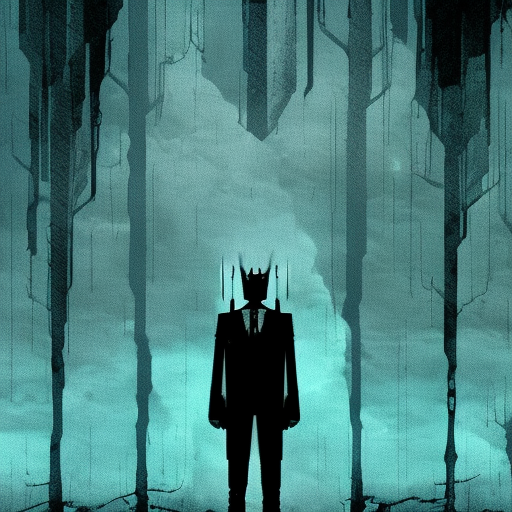The Invisible Man: A Tale of Power and Isolation
In H.G. Wells’ classic novel, “The Invisible Man,” a brilliant scientist named Griffin discovers the secret to invisibility. However, his newfound power leads him down a dark path of isolation and madness, ultimately resulting in a thrilling and cautionary tale about the dangers of unchecked power and the consequences of alienation.
The Pursuit of Knowledge and Power
Griffin’s journey begins with his relentless pursuit of knowledge and power. As a brilliant scientist, he becomes obsessed with the idea of achieving invisibility, believing it will grant him ultimate power and control over others. Through a series of experiments, Griffin successfully discovers the secret to invisibility, but his newfound power comes at a great cost.
Driven by his desire for dominance, Griffin becomes increasingly detached from society and loses touch with his own humanity. He uses his invisibility to commit acts of violence and terror, believing that his newfound power gives him the right to act with impunity. However, his actions only serve to isolate him further, as he becomes a fugitive pursued by both the authorities and his own inner demons.
The Perils of Isolation
As Griffin’s isolation deepens, so does his descent into madness. Cut off from human connection, he becomes consumed by paranoia and fear. Unable to trust anyone, he lashes out at those around him, leaving a trail of destruction in his wake. The invisible man’s isolation serves as a cautionary tale, highlighting the dangers of unchecked power and the importance of maintaining human connections.
Throughout the novel, Wells explores the theme of isolation in various forms. Griffin’s invisibility not only physically separates him from others but also creates an emotional and psychological barrier. His inability to form meaningful relationships and his constant fear of being discovered further exacerbate his isolation, leading to his ultimate downfall.
The Consequences of Unchecked Power
“The Invisible Man” serves as a powerful commentary on the consequences of unchecked power. Griffin’s invisibility initially grants him a sense of invincibility, leading him to believe that he is above the laws and morals that govern society. However, as his actions become increasingly destructive, he realizes that power without responsibility is a dangerous and destructive force.
Wells uses Griffin’s story to explore the corrupting influence of power and the importance of using it responsibly. The invisible man’s actions serve as a stark reminder that power, when left unchecked, can lead to chaos and destruction. It is a cautionary tale that warns against the dangers of allowing power to corrupt and emphasizes the need for accountability and empathy.
Key Takeaways:
- The pursuit of power and knowledge without responsibility can lead to destruction and isolation.
- Isolation can have severe psychological and emotional consequences, leading to paranoia and madness.
- Unchecked power can corrupt individuals and society, highlighting the importance of accountability and empathy.
“I meditated, and the mass of men I saw in the world about me, in my aimless investigations, appeared infinitely little. All the schemes of happiness that had been so delightful to contemplate, seemed trivial, futile, and insignificant.” – H.G. Wells, The Invisible Man
In conclusion, “The Invisible Man” is a gripping tale that explores the perils of unchecked power and the consequences of isolation. Through the character of Griffin, Wells delves into the dark side of human nature and the dangers of pursuing power without responsibility. This cautionary tale serves as a reminder of the importance of empathy, accountability, and maintaining meaningful connections with others.












